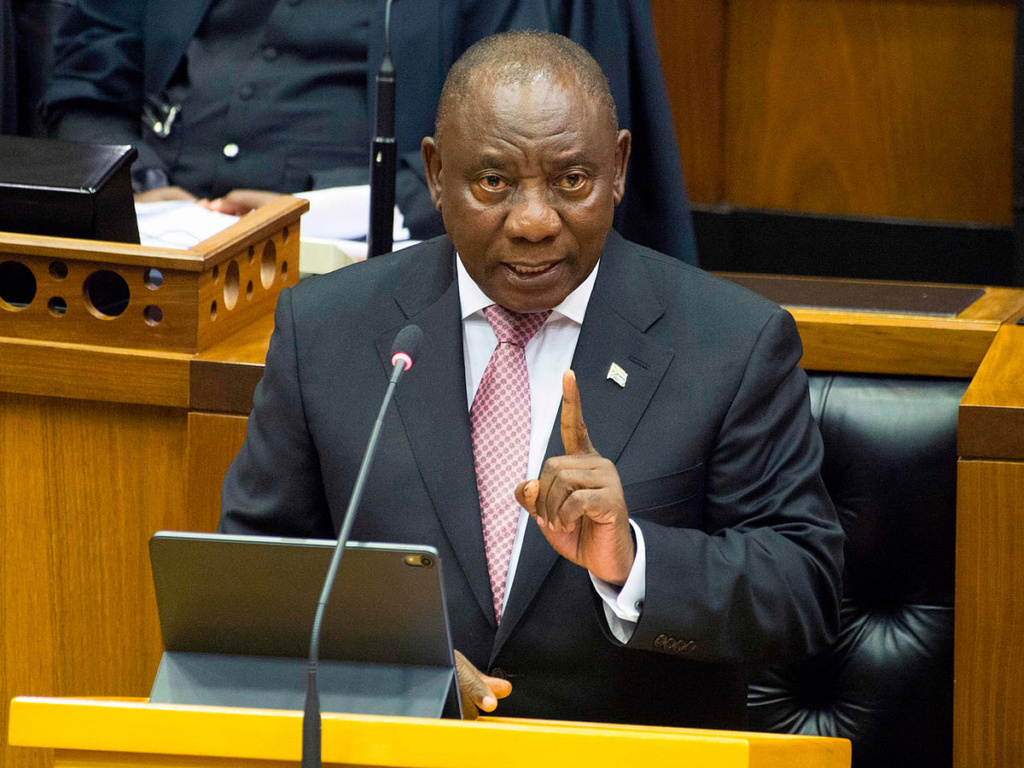
By Olakunle Agboola – South African President Cyril Ramaphosa has called for his country’s political parties to overcome their differences and find “common ground” to form the first national coalition government in its young democracy
Last week Sunday, President Cyril Ramaphosa called for South Africa’s political parties to overcome their differences and establish the first national coalition government in its young democracy.
His remarks came in a speech straight after the final election results were announced confirming that no party won a majority vote in the recent election. Unprecedented coalition talks were set to begin to find a way forward for Africa’s most developed economy.
Ramaphosa’s African National Congress party had already lost its 30-year majority after more than 99% of votes were counted and demonstrated, the party could not surpass 50%. The ANC gained 40% of the vote in the final count, and this is a significant percentage but not enough for the party to win the election.
Without a majority, it is necessary to agree on a coalition with other parties for the first time in 30 years to co-govern and re-elect Ramaphosa for a second term. South Africa’s national elections determine the number of seats each party gets in Parliament while the lawmakers elect the president later.
Ramaphosa said: ‘Our people have spoken. Whether we enjoy it or not, they have spoken. We have heard the voices of our people, and we must respect their choices and desires… The people of South Africa anticipate their leaders to work together to meet their needs. This is a time for all of us to set personal ambition aside and put South Africa first.”
The ANC was the party of Nelson Mandela which freed South Africa from the apartheid regime of white minority rule in 1994. It had governed with a comfortable majority since Mandela became President. The recent election saw an unprecedented slump in its support as voters deserted the party due to its failure to solve widespread poverty, and extremely high unemployment rates ravaging the country of its youth potential.
The ANC had previously stated that it was initiating its negotiations with all major parties. More than 50 parties participated in the election, and at least eight of the political parties had a significant share of the vote. At least 26 of them, including the MK Party leader Jacob Zuma, have lodged objections and complaints with the electoral body alleging voting irregularities, which it has promised to address.
The DA won the second most votes with 21.8%, and the two parties would hold a majority together and be able to govern. John Steenhuisen, DA leader, said his party has started initiating talks with parties. The ANC won 159 seats in the 400-seat Parliament, down from the 230 seats the party won in the last election. The DA increased slightly to 87 seats.
There has been some pressure for coalition talks to progress and for the uncertainty to be minimized, as the new Parliament needs to sit for the first time and elect a president within 14 days of the election results being announced.
South Africa is a peculiar nation and one of the leading voices for the continent. The focus has been on the rainbow nation for all possible outcomes of who will lead more than sixty million South Africans in the coming days.
The entire world is pondering if South Africa can weather the storm and come out resolving various opinions of the citizens, who voted along racial lines and never hoped the white minority would gain control of power. Some black South Africans have asserted that they are unwilling to allow the DA party to take the lead as it reminds them of the days of the apartheid regime. On the contrary many black South Africans have argued that the DA party is the answer to myriads of problems facing South Africa.
Amid many coalition options, the ANC, which is South Africa’s oldest political party, could join or negotiate with MK and the Economic Freedom Fighters. The DA on the other hand has long said it will not work with the EFF and MK, calling them a “doomsday coalition” for South Africa.
Steenhuisen, the party’s leader, repeated his stance last week in a speech on national television but said his party has started talking with other political parties with cool heads and open minds.
Political analyst van Heerden stated that an ANC-DA coalition would “possibly give stability” but there were some individuals within the ANC who would oppose it.
The next few days will be challenging, and South Africans will have to be mature behind closed doors to make the country first.









